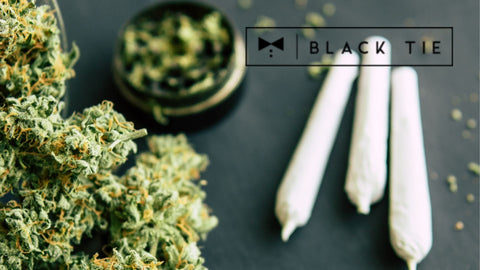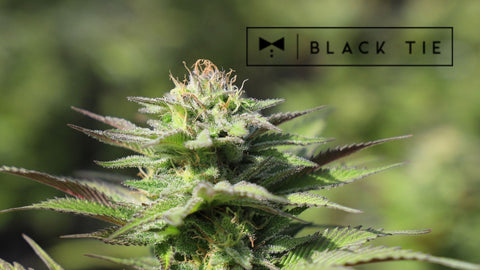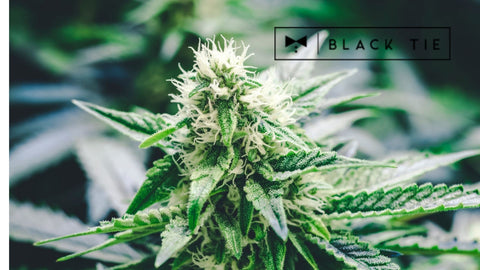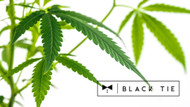Delta-8 VS Delta-9. What’s the difference?
October 13, 2021
Delta-8 THC and delta-9 THC: they may sound almost identical, but their effects couldn’t be much more different.
It’s true — delta-8 isn’t nearly as similar to delta-9 as their names imply! Keep reading to learn more about the many differences between these two special cannabinoids. Here’s an outline of what we’ll be covering:
- Cannabinoid chemistry 101
- Delta-8 vs delta-9 THC: the similarities
- Delta-8 vs delta-9: what the research says
- Delta-8 vs delta-9 THC: anxiety
- Delta-8 vs delta-9 THC: memory
- Delta-8 vs delta-9 THC: mental effects
- Delta-8 vs delta-9 THC: dosing strategy
- Delta-8 vs delta-9 THC: mystery
- Delta-8 vs delta-9 THC: legality
- Delta-8 vs delta-9 THC: which is more common
- Delta-8 drug testing: what you need to know
- The best ways to take delta-8 THC
- Where to find delta-8 products
Cannabinoid chemistry 101. Cannabis Plant
What is delta-8 THC? It’s known as an isomer of ‘regular’ delta-9 THC, meaning it has the same chemical composition but a slightly different chemical structure.
The National Cancer Institute has done intensive research on delta-8 THC; according to them, it’s defined as: [1]
“An analog of tetrahydrocannabinol (THC) with antiemetic, anxiolytic, appetite-stimulating, analgesic, and neuroprotective properties. [Delta-8] binds to the cannabinoid G-protein coupled receptor CB1, located in the central nervous system [...]. This [compound] exhibits a lower psychotropic potency than [delta-9], the primary form of THC found in cannabis plant.”
What’s an analog, you might ask? In the chemistry world, an analog is defined as “a compound having a structure similar to that of another compound, but differing from it in respect to a certain component.” In other words, delta-8 and delta-9 are super similar — but they differ when it comes to the position of a single chemical bond. [2]
Both cannabinoids have the exact same chemical structure, which is C₂₁H₃₀O₂. The only difference between them is the position of a double carbon bond; delta-8’s bond lies at the 8th position, while delta-9’s lies at the 9th. Intuitive enough, right?

Delta-8 vs. delta-9 THC: how they’re similar
Let’s look at the similarities between delta-8 and delta-9 before diving deep into the differences. It turns out that these two cannabinoids have some similarities after all!
Both delta-8 THC and delta-9 THC may:
- Get you high
- Relieve anxiety/irritability
- Increase hunger (aka give you the munchies)
Research also shows that both delta-8 and delta-9 may benefit cancer patients. In 1995 Dr. Raphael Mechoulam discovered that delta-8 decreased nausea in 100% of his cancer patients. These patients stopped vomiting entirely, even as their chemo dosages stayed the same. [3]
In fact, delta-8 may increase appetite even more than ‘regular’ THC does. No one has yet discovered an explanation for this.
One more similarity between these THC isomers for now: both can be modulated and ‘balanced out’ with other terpenoids and cannabinoids. The terpene beta-caryophyllene may be especially balancing, as it binds to CB2 receptors. If any sort of THC has gotten you too high, eating some black pepper (it’s rich in BCP) may be enough to bring things back under control!
Delta-8 THC vs delta-9 THC: what the research says
The structural differences between delta-8 and delta-9 means these cannabinoids bind to your brain’s receptors in different ways.
The biggest difference? Delta-8 do not have such psychoactive effects as delta-9 THC is. The high it produces is gentler and much more manageable. Users attest that delta-8’s high is smooth. Let’s zoom in a little closer on how this works.
Research shows that delta-8 THC can bind to both types of endocannabinoid receptors, CB1 and CB2. This makes it unlike CBD, which primarily binds to CB2, and unlike THC, which primarily binds to CB1. Delta-8’s dual binding affinity means it provides truly balanced mental effects. If it doesn’t promote homeostasis, we don’t know what does! [4]
Delta-8 THC vs delta-9 THC: anxiety
Research shows that delta-8’s gentle nature makes it less susceptible to anxious side effects than delta-9 is.
One 2018 study found that delta-8 THC didn’t have clear effects on heart rate or blood pressure. All in all, delta-8 is remarkably free from side effects. It tends to make people calmer and more relaxed. [5]

Delta-8 THC vs. delta-9 THC: memory
Delta-8 also differs from delta-9 when it comes to its effects on cognitive function. While large amounts of delta-9 THC are known to decrease one’s working memory, delta-8 is different.
New research has shown that delta-8 may actually increase your brain’s acetylcholine levels, resulting in holistically improved cognition. [6] This property might make delta-8 products a boon to regular cannabis users — as such use may reduce acetylcholine levels over time.
Delta-8 THC vs. delta-9 THC: mental effects
As we explained earlier, the structural variance between delta-8 and delta-9 is slight. But this tiny tweak makes all the difference: it allows delta-8 THC to bind to a wider spectrum of physiological receptors than any other known cannabinoid. Delta-8 may bind to:
- CB1 receptors in the brain
- CB2 receptors in the peripheral body
- CB3/GPR-55 receptors
- Adenosine receptors
- ‘Opioid’ receptors
- TRPV1 receptors
- TRPV2 receptors
This complex binding affinity makes delta-8’s effects equally complex. It’s uplifting...but not overly so. It’s relaxing...but it probably won’t give you couch-lock. All in all delta-8 presents what many users call a perfect blend of CBD and delta-9.
Delta-8 THC vs. delta-9 THC: dosing strategies
Delta-8 is milder and less side-effect-prone than delta-9 — and these upsides make it much easier to dose. Some experts refer to delta-8 as ‘THC lite.’ Even high doses of delta-8 THC can be enjoyed without anxiety, paranoia, or other wonky side effects. Many delta-8 users find that delta-8 actually enhances their productivity as they go about their daily activities.
Delta-8 THC vs. delta-9 THC: mystery?
While both delta-8 and delta-9 have been known about since the 1940s, ‘regular’ THC has been studied much more thoroughly. According to PubMed.com, delta-9 has been studied 30 times more than delta-8!
Product sourcing is also a problem when it comes to delta-8 THC research. Only small amounts of delta-8 are produced by cannabis or hemp, meaning that medical-grade products have had to be sourced via different means: chemical conversion. According to board-certified neurologist Dr. Ethan Russo, “delta-8-THC can be converted in a lab from cannabidiol (CBD) and Delta-9-tetrahydrocannabinol (THC).” Russo believes that most delta-8 is actually converted from CBD.
Thankfully, the tide is just starting to turn when it comes to d-8 research. The cannabinoid is finally being given the credit it deserves!
Delta-8 THC vs. delta-9 THC: legality
Legal status is one area where d-8 and d-9 couldn’t be much further apart. While delta-9 THC is illegal regardless of where it comes from, delta-8 is fully legal if it comes from industrial hemp.
You can thank the legal loopholes present in 2018’s Federal farm Bill for this difference. Per the Farm Bill, delta-9 THC is in a class of its own — it’s the only hemp-derived cannabinoid that isn’t legal.
Here’s some additional info courtesy of a top cannabis federal law firm: [7]
“[...] Delta-8 THC isomerized from CBD might fall into the category of a ‘semisynthetic,’ but the DEA rule does not touch on those, and because the 2018 Farm Bill included hemp derivatives within the definition of hemp plants, it appears, perhaps unintentionally, to be deemed hemp plants and not a controlled substance.”
In other words, the Federal government’s past restriction of cannabis research seems to have worked against them. At the time the Farm Bill was passed legislators simply weren’t aware that hemp plants contained so many psychotropic cannabinoids above and beyond ‘regular’ THC!
Delta-8 THC vs. delta-9 THC: which is more common?
Delta-8 and delta-9 have also followed different trajectories when it comes to their popularity.
While delta-9 THC has been enjoyed via cannabis plants for much longer than delta-8 has, the latter cannabinoid is rapidly becoming more popular. Delta-8 THC is now a top choice for those who live in states where cannabis is illegal. It has many of the same effects, after all!
Unfortunately, some states that outlaw cannabis products have since enacted their own delta-8 bans. NBC reports on this trend: [8]

“In recent months, 14 states — Alaska, Arizona, Arkansas, Colorado, Delaware, Idaho, Iowa, Kentucky, Mississippi, Montana, New York, Rhode Island, Vermont, and Utah — have blocked the sale of delta-8, citing lack of research into the compound’s psychoactive effects. However, not all states see the compound as a health concern due to psychoactive properties. A section that would have banned delta-8 in Texas was struck from a state bill in May, keeping delta-8 THC legal in Texas.”
Delta-8 THC and drug testing: what you should know
While hemp-derived delta-8 THC is legal, using it could still cause legal repercussions. Why’s that? Because this isomer can sometimes be confused for ‘regular’ THC on some types of drug tests.
Delta8 THC might be legal, but its chemical and metabolic similarities mean that the average drug test just can’t tell the difference between it and Delta9.
As cannabinoid chemist Ian Bush explains:
“Drug tests typically test for metabolites left behind by consumption and not the chemical itself, and since [delta-8] bonds to the same receptors and gets metabolized the same way [as delta-9 THC], you get it.” [7]
Unfortunately for those of us who are subjected to drug tests, virtually all THC isomers become broken down into the same metabolites — whether these isomers are legal or not.
In other words, delta-8 THC, delta-9, THCa, THCv, and 11-Hydroxy THC all ‘look’ like THC to standard point of care drug tests, because all of them produce the metabolite THC-COOH.
Consider talking to your employer personally if you’re concerned about the possibility of a false positive. Simply let them know you’re taking delta-8 THC and explain why that could throw off your next drug test result. And don’t worry: federally legal precedent is on your side. If you do end up with a false positive, confirmation testing will be able to correctly distinguish between other cannabinoids and affirm that you didn’t do anything illegal.
The best way to take delta-8 THC
All these differences aside, let’s take one last look at the similarities between delta-8 and delta-9. Why? Because the best way to take delta-8 is also the best way to take delta-9: the tincture.
It’s true — taking delta-8 THC via tincture is a great way to go. Tinctures possess several benefits over other delivery methods:
- They kick in fast
- They kick in powerfully
- They have high bioavailability
- They can be dosed according to your feelings (via biofeedback)
Where to find delta-8 THC products
Other types of delta-8 THC products can be pretty great, too. One can find premium d-8 at dispensaries, health food stores, and hemp shops. You can also obtain small amounts of delta-8 THC through full spectrum CBD products.
But taking the local route is just one way to enjoy delta-8 THC. You can also find premium delta-8 online! Here are a few product ideas.
Delta-8 THC gummies
Our mango delta-8 gummies provide 50 milligrams of delta-8 each — they really pack a punch! In addition to being delicious, these gummies are all-natural, vegan, and gluten-free. If you’re looking for something potent, this is it.
Delta-8 THC moonrocks
Delta-8 infused moonrocks are one of the most unique delta-8 products available on the market today. They’re a twist on the classic high-THC moonrock, which is comprised of cannabis buds coated in distillate and then powdered with isolate.
Our infused moonrocks feature Bubba Kush hemp flower, coated in delta-8 distillate and then truly coated with 99.9% pure CBD isolate. Getting into the right headspace has never been easier.
Delta-8 vape
D-8 vape cartridges present a wonderful way to experience the entourage effect. Our "Ultimate Trifecta" cartridges contain CO2-extracted CBD distillate, high-CBG hemp plant extract, and delta-8 distillate in a super convenient format! This combination is designed to fully activate the entourage effect and have you feeling amazing. It even tastes delicious — the flavor is natural and subtly sweet.
Other delta-8 products
Check out Black Tie’s full selection of delta-8 THC products here. There’s something for everybody!
Delta-9 vs. delta-8: summing things up
Delta-9 and delta-8 sound pretty similar, but they couldn’t be much more different. Many people that delta-8 THC provides an impressive amount of inner balance — and a hefty dose of good vibes.
In other good news, delta-8 THC remains legal in most of the United States. It can be freely enjoyed by anyone over the age of 18 who wants to feel better. Discover the delta-8 difference for yourself today.
FAQ
Delta-8 VS Delta-9. What is the difference?
Delta-8 THC is the primary active ingredient in cannabis, first isolated by Dr. Raphael Mechoulam in 1964. Delta-9 THC is 'weaker' than Delta-8 because it has a lower binding affinity to the cannabinoid receptor CB1 that mainly mediated the psychoactive effects of smoking or eating cannabis. Both are very similar molecules but Delta-9 is missing a Carbon atom.
Is Delta 8 just as good as Delta 9?
Delta-9 is more psychoactive on its own than Delta-8, but when they are both combined in equal amounts one can experience the same effect. One of the most common combinations is 1 gram of hash oil (a 20:1 ratio) mixed with 0.5 grams of regular (decarboxylated) cannabis which contains mainly THC-acid (a 1:20 ratio). This means that the hash oil is 10 times stronger than regular weed.
Why is Delta 8 legal and not Delta 9?
The reason for this is that Delta-8 is legal because it does not have the same 'psychoactive' or 'intoxicating' effects on users.
Is Delta 8 legal in all states?
No, it is only legal in some states: Arizona, Delaware, Florida, Illinois, Indiana, Iowa (only for people who suffer from epilepsy), Kentucky, Louisiana, Maryland (for research purposes only; patients taking the drug must be registered with the health department and be prescribed medical marijuana by a doctor who has an established relationship with you), Minnesota, Mississippi, Missouri, North Carolina, Ohio (only for people who suffer from epilepsy), Oklahoma, Pennsylvania, South Dakota, Tennessee, Utah, and Wisconsin.

